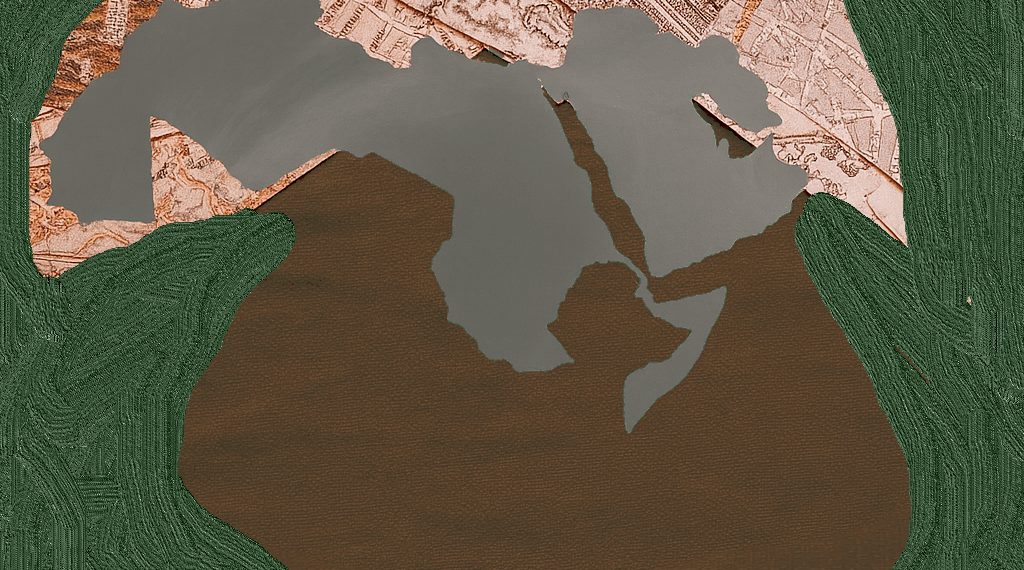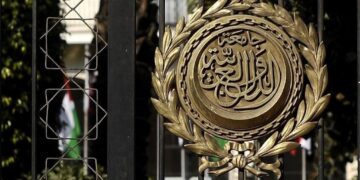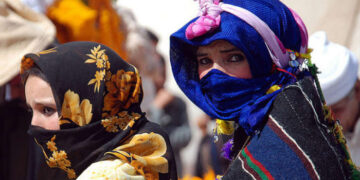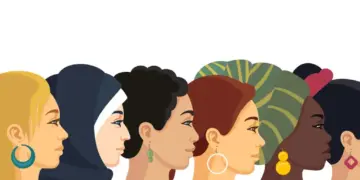Qatar’s foreign policy over the past two decades has been distinguished by its intensified mediation efforts in numerous international and regional crises and conflicts. Many of these efforts have yielded positive outcomes, resulting in the resolution of various crises and the establishment of peace in numerous regions and countries. The most recent of these positive outcomes is the signing of a peace agreement between Rwanda and the Democratic Republic of the Congo, brokered jointly by the United States and Qatar in Washington. This development has raised hopes for an end to the fighting that has lasted for nearly 30 years and has resulted in the deaths of thousands and the displacement of hundreds of thousands since the beginning of the year.
U.S. President Donald Trump praised the role of Qatar, which exerted significant efforts in coordination and action to achieve this agreement in collaboration with the African Union. Trump stated that he extends his thanks to the State of Qatar “which worked closely with us on the peace agreement between Rwanda and the Democratic Republic of the Congo,” adding that it “worked tirelessly to reach the peace agreement.”
For his part, U.S. Secretary of State Marco Rubio said that reaching the agreement was not easy and that there is still work to be done. He added that they are pleased to have hosted the peace meeting between the Democratic Republic of the Congo and Rwanda, and that Washington believes peace between disputing nations is achievable. The U.S. Secretary praised the cooperation with the State of Qatar and the significant achievements that were realized.
Meanwhile, Rwandan Foreign Minister Olivier Nduhungirehe stated that President Trump and the State of Qatar played an important role in facilitating this historic agreement with the Democratic Republic of the Congo.
Nduhungirehe noted that the starting point of the agreement was in Doha, affirming support for the Qatari mediation to ensure the success of this initiative. For her part, Democratic Republic of the Congo’s Foreign Minister Thérèse Kayikwamba Wagner said, “We are beginning a new chapter that calls for courage in implementing the agreement and achieving peace,” praising the role of Doha, which hosted the first meeting on the path to the agreement, facilitated the negotiations, and brought them to a successful conclusion. She also stated that Qatar remained a steady partner and a principled actor in the peace efforts.
This clear Qatari commitment to the success of peace negotiations in a conflict outside its immediate geographic scope—and one that does not directly affect or threaten Qatari interests in any way—indicates that resolving conflicts through peaceful means is one of the core and fundamental principles of Qatar’s foreign policy.
Mediation as a basis for Qatari foreign policy
Qatar adopts, in its foreign policy, the principle of resolving disputes through peaceful means, including dialogue, preventive diplomacy, mediation, and good offices, based on its constitutional commitment. Article 7 of its Permanent Constitution, issued in 2003, stipulates that the country’s foreign policy is based on the promotion of international peace and security by encouraging the resolution of conflicts through peaceful means. This constitutes one of the main foundations of Qatar’s foreign policy.
Qatar enjoys an international reputation as a neutral and trusted mediator and is invited to assume mediation roles when all parties involved agree to its participation. Qatar remains committed to the use of good offices and mediation as effective tools in preventing conflicts and maintaining international peace and stability, participating in mediation efforts between states as well as between governmental and non-governmental actors.
In 2023, Qatar introduced new ministerial roles within the Ministry of Foreign Affairs aimed at enhancing the focus on mediation and good offices at both the political and diplomatic levels, in addition to supporting the efforts of the teams of senior officials, diplomats, and technical experts working in this field.
Qatar has also worked to expand its institutional partnerships with a number of countries that possess advanced expertise in the field of mediation and conflict resolution, by signing memoranda of understanding in areas related to peace, reconciliation, and dispute settlement—including cooperation agreements with Sweden, Norway, and Finland.
Through its strategy, Qatar aims to strengthen its efforts in supporting international peacebuilding processes by adopting a comprehensive approach that involves opening channels of communication with a variety of actors, including non-governmental entities and underrepresented groups such as women and displaced persons. This includes supporting both formal and informal dialogue tracks, contributing to peacebuilding and conflict resolution.
Since 2004, Qatar has intensified its efforts in the fields of mediation and good offices by participating in initiatives aimed at ceasefire agreements, the restoration of diplomatic relations, prisoner exchanges and hostage releases, supporting national dialogues, settling border disputes, enhancing humanitarian response, and reaching peace agreements in a number of regional and international conflicts.
Qatari mediation efforts over 20 years
Over the past two decades, Qatar has emerged as an active mediator in a large number of international and regional mediation files. Its prominent efforts began in February 2004, when it contributed to the release of 100 Moroccan prisoners of war from Tindouf, Algeria, and facilitated their transfer to Morocco. In the same year, its diplomatic roles continued through mediation between the Palestinian factions Fatah and Hamas, followed by mediation efforts in Yemen in 2007 and 2008 aimed at achieving ceasefires and reaching peace agreements.
In 2007, Qatar also contributed to the release of the Bulgarian nurses from Libya and helped establish the Libyan Fund for Children Infected with AIDS in cooperation with the Czech Republic. In Lebanon, Qatar played a decisive role in 2008 by hosting negotiations between Lebanese factions, which resulted in the Doha Agreement. In Sudan, Qatar received an Arab mandate in 2008 to mediate in the Darfur peace talks, and it worked to facilitate the signing of a peace agreement between Sudan and Chad in 2009, in addition to its continued efforts in mediating between the Yemeni government and the Houthis.
The year 2010 witnessed a notable surge in Qatar’s involvement in the files of Sudan, Djibouti, Eritrea, and Yemen, where it mediated between these countries and various factions to reach ceasefire agreements. These efforts culminated in July 2011 with the signing of the Doha Document for Peace in Darfur after two and a half years of negotiations.
Between 2013 and 2015, Qatari mediation expanded to include the release of hostages and detainees in Yemen, Syria, Afghanistan, Libya, and Lebanon. Qatar also participated in several ceasefire agreements in Gaza between Palestinian factions and Israel, most notably in 2014 and 2021.
Qatar played a key role in the historic Doha Agreement between the United States and the Taliban in 2020, which outlined a timetable for the withdrawal of U.S. forces from Afghanistan. In 2021, Qatar played a critical role in the massive evacuation operations from Kabul following the U.S. withdrawal, assisting in the evacuation of over 110,000 people, including diplomats, journalists, aid workers, and civil society members.
In recent years, Qatar has continued its mediation efforts by facilitating a prisoner exchange agreement between the United States and Iran in 2023, as well as a similar agreement between Venezuela and the United States. It has also contributed to de-escalation efforts between Russia and Ukraine through family reunification arrangements and prisoner exchange operations, in addition to its ongoing roles in Somalia, Chad, Libya, and Lebanon.
In the Israeli-Palestinian file, Qatar played an increasingly prominent role between 2023 and 2024, mediating agreements for the release of hostages, prisoner exchanges, ceasefires, and the evacuation of the wounded and civilians from Gaza, in coordination with international and regional partners—underscoring its position as a trusted and principal mediator in the region.
Reasons for the success of Qatari mediation
These intensive political efforts in mediation, negotiation management, and the relentless pursuit of peace—efforts that have distinguished Qatar and led many international observers and political analysts to describe it as “the world’s preferred mediator” and “an indispensable partner for peace within the global community”—did not come about by coincidence or through unplanned initiatives. Rather, they are the result of a clearly defined and deliberate strategy. The key points of this strategy can be summarized as follows:
Maintaining a Wide Network of Relationships: Qatar is renowned for its broad and diverse network of contacts and relations. Doha maintains communication with numerous states and groups that may not enjoy favorable reputations among regional powers or major global actors—whether political movements or even armed resistance groups. This includes the Taliban, the Muslim Brotherhood, and opposition revolutionaries in Syria, Tunisia, and Yemen during what came to be known as the “Arab Spring.”
Qatar also maintains comparatively better relations—including economic ties—with Iran, in contrast to many of its neighbors, several of whom regard Iran as an adversary. In this context, the spokesperson for the Qatari Ministry of Foreign Affairs, Majed Al-Ansari, stated that Qatar made a strategic decision decades ago to play the role of peacemaker. He emphasized that success in this domain often requires doing “things that others will not do… and that means talking to people who are ostracized by the international community.”
Realism: Qatar’s ability to empathize with all parties contributes significantly to its efforts in reaching settlements and agreements. Analysts note that even while maintaining close cooperation with the Americans, Qatar has approached Islamist groups in the region with greater realism, viewing them as part of popular political movements that cannot be ignored or eliminated. In some cases, this approach proved beneficial, as members of the Taliban have indicated that they felt more at ease in Qatar, seeing it as a country that understands all sides.
Neutrality: Observers believe that Qatari negotiators do not necessarily possess exceptional skills compared to their counterparts from representatives and diplomats of other countries, including those in Europe, though their capabilities cannot be denied. Therefore, it is more about their approach of striving to remain as neutral as possible. It has been of utmost importance for them to play their role as mediators, which means setting aside any other considerations.
Speed of Decision-Making: The process of external decision-making is characterized by a shorter leadership hierarchy. Consequently, the Qatari Ministry of Foreign Affairs has the ability to make decisions quickly, enabling it to act decisively in a short amount of time.
Many observers add financial capabilities as one of the advantages of Qatar’s ability to mediate and conclude political settlements. While this is true to some extent, it is not the primary advantage, as many countries, both in the region and around the world, possess significant financial resources and have utilized these capabilities to enhance their roles on regional and international levels. However, they have not achieved the same degree of effectiveness and success as Qatar.
Criticisms of Qatari mediation efforts
The State of Qatar has faced sharp criticism due to its relationships with various parties and political movements in the region, such as the Taliban and Hamas, particularly in recent times during its prolonged mediation in the Gaza war. Doha has been subjected to a smear campaign involving Israeli and American political and parliamentary entities, alongside widespread defamation campaigns on social media attacking Qatar and its role as a mediator between Hamas and Israel. This is in addition to previous accusations, reiterated over the past years, regarding alleged Qatari support for parties hostile to the West and certain political regimes in the region. All this criticism and all these accusations have not been substantiated by any party or entity; rather, they have been used either as a form of political blackmail to pressure Qatar into adopting a particular perspective or stance in the conflict, or as part of political competition and the balance of power dynamics in the region.
These criticisms have not prevented, nor are they expected to prevent, Qatar from continuing to fulfill its role as a peacemaker and an effective and reliable mediator in the various crises and conflicts witnessed in the region or the world. On the contrary, there is a growing global recognition at various levels—whether among decision-makers, experts, or observers—of the importance of this Qatari role. In this regard, Rabie Al-Haddad, Director of the Multilateral Diplomacy Department at the United Nations Institute for Training and Research in Switzerland, stated, “Humanity has paid a heavy price for not sitting down and talking to one another in the past, during the two world wars.” He added, “Today, we need parties that enable conflicting sides to talk to each other and resolve their disputes through negotiations, diplomacy, and in accordance with international law.”
Therefore, regardless of the extent to which one party or another is satisfied with Qatar’s mediation, many experts agree that the world currently needs Qatar in this role.







